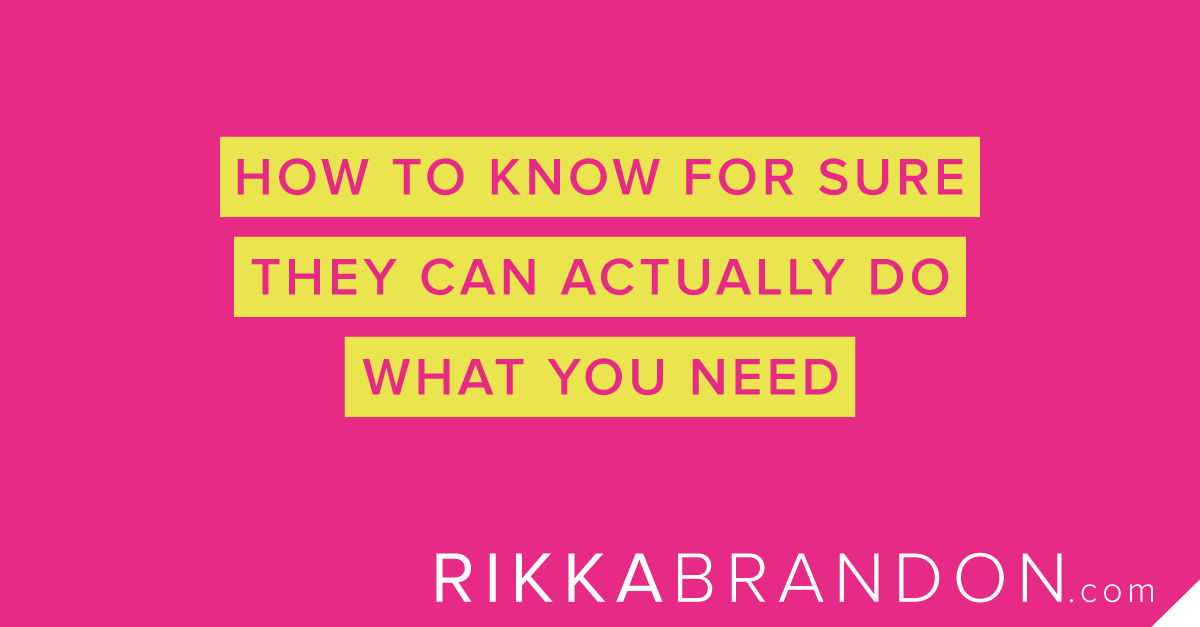A fantastic interview gets you pumped, but what happens when they show up and can't do the job? How can you be sure someone has the experience and skills you need?
Background and reference checks aren't really going to help and smooth talkers can fool even experienced interviewers.
Never fear, I have a solution! I started implementing a simple tool that gives me an immediate answer…before I even think about extending an offer.
Transcript
Today, I’m going to talk to you about how you can more accurately find out if a candidate is actually going to be good at the job versus just a great interviewer. One of the most common frustrations for entrepreneurs and small business managers is that somebody shows up at the interview and they’re awesome, they’re so great, and then they start they job and you’re like, “What happened? Is that the same guy or gal?”
I want to introduce you to a simple step that you can add into your selection process that will give you a ton of information so that you can make the most informed decision possible. Here is how to know for sure that they can actually do what you need in one pretty easy process.
This is called a pre-hire project.
A pre-hire project basically means you’re going to have them do some of the work they do in the job before they get the job, so you can see their quality of work, how long it takes them to do it, and a lot of other things – like how do they communicate? How much instruction do they need? Do they ask you 17 follow-up questions to create a social media image?
Whatever it is, you will get a ton of information from that short, limited exposure to working with them, as well as seeing their end work product.
A great example of this is a client of mine who wanted to hire a content manager. They wanted someone who could research technical topics, write an engaging blog post, come up with tweetables, come up with social media blips and blurbs to include, and then come up with a lead magnet idea, as well as looking at “If we were going to boost this post, how would we boost it to be as effective as possible?”
They had three finalists. One person opted out. They didn’t want to participate. Even though they were being paid for the pre-hire project, they opted out. I think that’s good riddance, right? Get out of there.
If you’re not able to compete for the role, you’re not for my team, at least.
If you want to hire somebody who doesn’t want to compete because they don’t think they can win, that’s your choice. It’s a bad choice.
Don’t do that.
The other two did it. The first person wrote a life-coachy, touchy-feely blog post. She had her tweetables and stuff. It took her four hours. The other person wrote an article on a technical topic, infused it with personality, and made it very engaging. She wrote great tweetables. She came up with a great lead magnet. She did everything on the checklist, and she did it within an hour and a half. It took her way less time, she did a much better job, and she actually followed the instructions.
Obviously, it was a no-brainer who they were going to offer the job to.
I encourage you to look at your situation and see how you can bring pre-hire projects into it. Lots of times, a graphic designer, it’s having them create a basic design. If you’re hiring a coder, have them code a basic page. If you are hiring a sales rep, have them do a ride along, or have them role play with you. You need to see what they’re actually going to be like in the role, otherwise, you’re just guessing – and when you guess, you’re probably going to be wrong.
Please use pre-hire projects in your selection process. Hit me up on Facebook to tell me how it worked or if you’re kind of stuck and can’t figure out how to make it work for you.
I hope this helps!
Psst…. Know someone else who could use this information? You can use those handy social share buttons right below to share this with your friends. Come on, you know you want to! 😉


Recent Comments